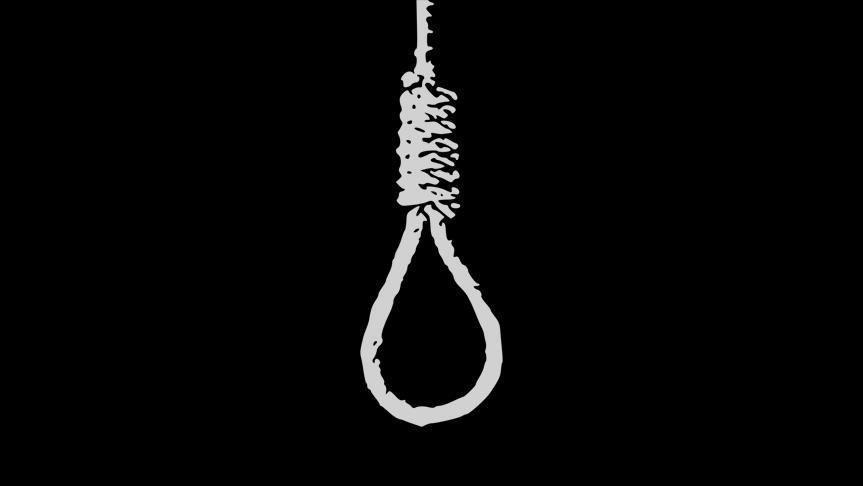
Suicide is a major public health concern. When a person dies by suicide, the effects are felt by family, friends, and communities. This brochure can help you, a friend, or a family member learn more about the warning signs of suicide, ways to help prevent suicide, and effective treatment options.
What is suicide?
Suicide is when people harm themselves with the goal of ending their life, and they die as a result.
A suicide attempt is when people harm themselves with the goal of ending their life, but they do not die.
Avoid using terms such as “committing suicide,” “successful suicide,” or “failed suicide” when referring to suicide and suicide attempts, as these terms often carry negative meanings.
Who is at risk for suicide?
People of all genders, ages, and ethnicities can be at risk for suicide.
The main risk factors for suicide are:
· A history of suicide attempts
· Depression, other mental disorders, or substance use disorder
· Chronic pain
· Family history of a mental disorder or substance use
· Family history of suicide
· Exposure to family violence, including physical or sexual abuse
· Presence of guns or other firearms in the home
· Having recently been released from prison or jail
· Exposure, either directly or indirectly, to others’ suicidal behavior, such as that of family members, peers, or celebrities
Most people who have risk factors for suicide will not attempt suicide, and it is difficult to tell who will act on suicidal thoughts. Although risk factors for suicide are important to keep in mind, someone who is showing warning signs of suicide may be at higher risk for danger and need immediate attention.
Stressful life events (such as the loss of a loved one, legal troubles, or financial difficulties) and interpersonal stressors (such as shame, harassment, bullying, discrimination, or relationship troubles) may contribute to suicide risk, especially when they occur along with suicide risk factors.
What are the warning signs of suicide?
Warning signs that someone may be at immediate risk for attempting suicide include:
· Talking about wanting to die or wanting to kill themselves
· Talking about feeling empty or hopeless or having no reason to live
· Talking about feeling trapped or feeling that there are no solutions
· Feeling unbearable emotional or physical pain
· Talking about being a burden to others
· Withdrawing from family and friends
· Giving away important possessions
· Saying goodbye to friends and family
· Putting affairs in order, such as making a will
· Taking great risks that could lead to death, such as driving extremely fast
· Talking or thinking about death often
Other serious warning signs that someone may be at risk for attempting suicide include:
· Displaying extreme mood swings, suddenly changing from very sad to very calm or happy
· Making a plan or looking for ways to kill themselves, such as searching for lethal methods online, stockpiling pills, or buying a gun
· Talking about feeling great guilt or shame
· Using alcohol or drugs more often
· Acting anxious or agitated
· Changing eating or sleeping habits
· Showing rage or talking about seeking revenge
What treatment options and therapies are available?
Effective, evidence-based interventions are available to help people who are at risk for suicide:
Cognitive Behavioral Therapy (CBT): CBT is a type of psychotherapy that can help people learn new ways of dealing with stressful experiences. CBT helps people learn to recognize their thought patterns and consider alternative actions when thoughts of suicide arise.
Dialectical Behavior Therapy (DBT): DBT is a type of psychotherapy that has been shown to reduce suicidal behavior in adolescents. DBT also has been shown to reduce the rate of suicide attempts in adults with borderline personality disorder, a mental illness characterized by an ongoing pattern of varying moods, self-image, and behavior that often results in impulsive actions and problems in relationships. A therapist trained in DBT can help a person recognize when their feelings or actions are disruptive or unhealthy and teach the person skills that can help them cope more effectively with upsetting situations.
Brief Intervention Strategies: Research has shown that creating a safety plan or crisis response plan—with specific instructions for what to do and how to get help when having thoughts about suicide—can help reduce a person’s risk of acting on suicidal thoughts. Staying connected and following up with people who are at risk for suicide also has been shown to help lower the risk of future suicide attempts. Research also has shown that increasing safe storage of lethal means can help reduce suicide attempts and deaths by suicide. In addition, collaborative assessment and management of suicide risk can help to reduce suicidal thoughts.
Collaborative Care: Collaborative care is a team-based approach to mental health care. A behavioral health care manager will work with the person, their primary health care provider, and mental health specialists to develop a treatment plan. Collaborative care has been shown to be an effective way to treat depression and reduce suicidal thoughts.
What should I do if I am struggling or someone I know is having thoughts of suicide?
If you notice warning signs of suicide—especially a change in behavior or new, concerning behavior—get help as soon as possible.
Family and friends are often the first to recognize the warning signs of suicide, and they can take the first step toward helping a loved one find mental health treatment.
If someone tells you that they are going to kill themselves, do not leave them alone. Do not promise that you will keep their suicidal thoughts a secret—tell a trusted friend, family member, or other trusted adult.
——Group launches campaign to decriminalise suicide——–

A global civil society organisation dedicated to suicide prevention, LifeLine International, on Monday, launched a campaign to “Decriminalise Suicide Worldwide” with a focus on changing the laws in African countries where suicide remains a crime.
The first phase of the campaign will focus on advocating for legislative change in Nigeria and Malawi – two countries that criminalise attempted suicide and where there is strong and growing momentum for change.
In Africa, there are at least eleven countries with a combined population of half a billion where attempted suicide remains a criminal offence, according to a new Campaign Brief by LifeLine International with input from the International Bar Association.
A statement made available to our correspondent noted that laws criminalising suicide are generally associated with higher suicide rates because they are ineffective deterrents and inhibit people in suicidal distress from seeking help.
“Decriminalising suicide will help achieve the UN’s Sustainable Development Goal to decrease global suicide rates by 30 per cent by 2030. Where we seek to change laws, LifeLine International will also work to either establish or enhance crisis line services.
“In Nigeria and Malawi, LifeLine International will leverage the organisation’s extensive and global campaigning, coalition-building and policy reform experience, engaging extensively with civil society, governments, and service providers to achieve tangible change. Decriminalisation has gathered positive momentum in the last five years, with legal reform completed in Ghana, Malaysia, Pakistan, India and Singapore,” the statement read in part.
On the launch of the campaign, Lifeline International African Coordinator, Prof. Taiwo Sheikh called on governments across the continent to accelerate progress, decriminalise suicide, and implement prevention measures:
“The decriminalisation of suicide in Africa is an urgent priority given the number of archaic laws that need to be repealed on the continent. Criminalisation is the opposite of compassionate care and does not deter suicide attempts, nor does it address the underlying issues of suicide ideation. It goes against Africa’s cultural and religious values, which emphasise empathy and understanding.
“LifeLine International is committed to working with its Members on the continent and other actors of change – including Africa CDC – building on impressive ongoing efforts across the continent.
“Nigeria and Malawi are both rapidly advancing on their journeys towards decriminalisation and improved crisis support services for individuals in distress. I am convinced we can collectively make this vision a reality,” he said.
The organisation said it will engage with governments and CSOs in the 16 African countries with unclear legal frameworks to seek clarity and request the removal of barriers preventing people from seeking help.
It added that the campaign aligns with Africa CDC’s commitment to support countries in repealing legislation that acts as a barrier to mental health.
“The campaign will leverage the health agency’s convening and policy-making power to secure policy reform. Decriminalisation of suicide is also supported by the World Health Organisation – a position endorsed by health ministers in 2013.
“As part of the campaign, two digital platforms launch today – A social change campaign platform serving as the public face of the campaign, and a bespoke knowledge platform for experts, NGOs, civil society, and crisis support services to accelerate decriminalisation,” it stated.
LifeLine CEO Thilini Perera said, “Through our knowledge platform, we are bridging the gap between countries, to advocate for change. LifeLine International’s commitment to using innovative technology and galvanising support will accelerate decriminalisation campaigns, allowing people living in countries where suicide remains a crime to receive the help they deserve. We are proud to open-source our knowledge to support network participants. Our platform will enable us to track progress and move closer to a world where suicide is decriminalised, stigma is reduced, and help-seeking is both accessible and encouraged.”
*The Punch














